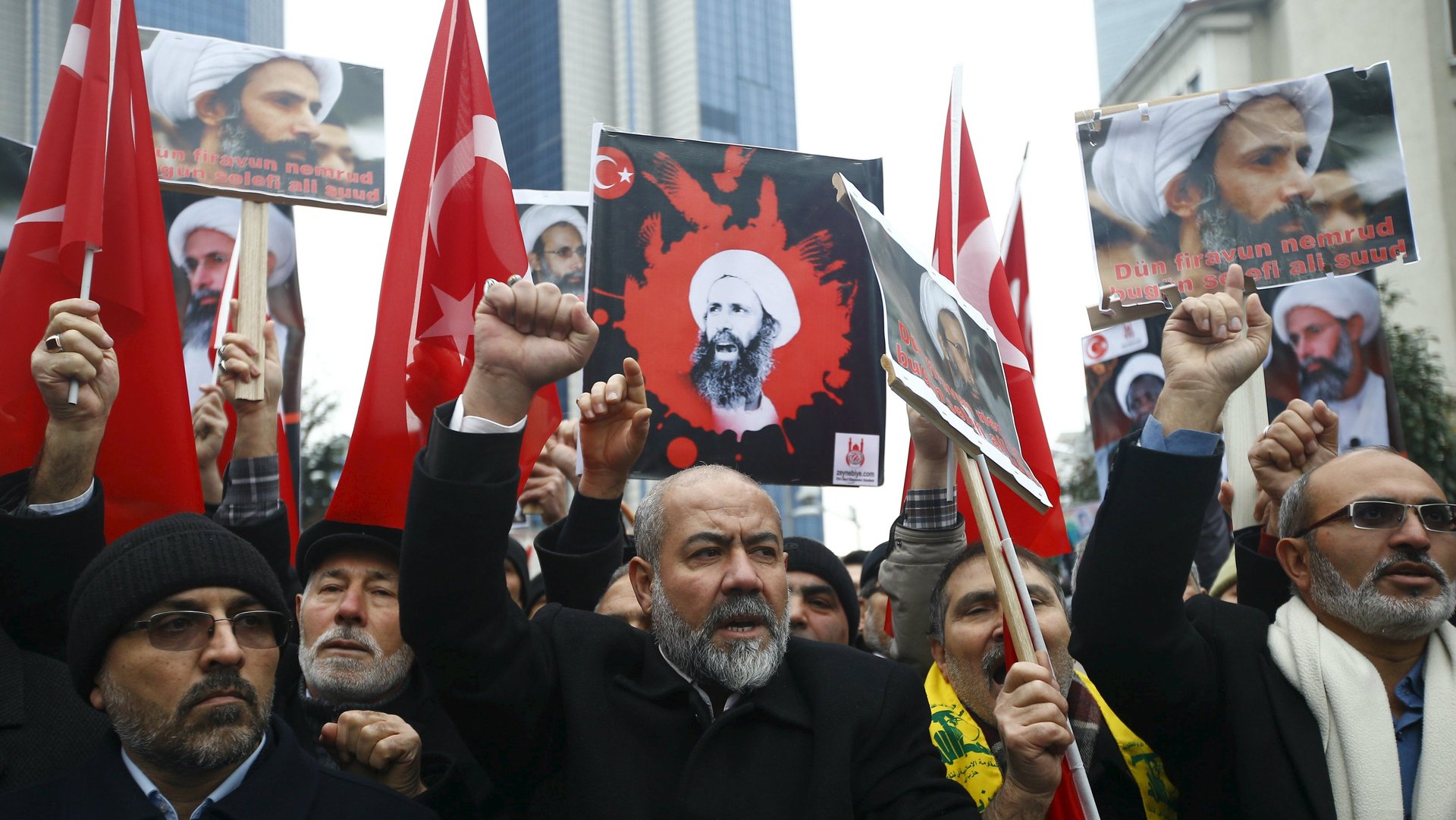Diplomatic spite: Iran wants to change a street name to embarrass Saudi Arabia
There’s a familiar ring to reports that the Tehran thoroughfare on which the Saudi Arabian embassy stands is likely to be re-named Sheikh Nimr al-Nimr Street, after the Shia cleric executed by the Saudis. Renaming a street or square to embarrass a rival is a hoary old diplomatic device.


There’s a familiar ring to reports that the Tehran thoroughfare on which the Saudi Arabian embassy stands is likely to be re-named Sheikh Nimr al-Nimr Street, after the Shia cleric executed by the Saudis. Renaming a street or square to embarrass a rival is a hoary old diplomatic device.
Iran’s deployed it before: In 1981, Tehran changed the name of the street where its UK embassy is based, from Churchill Street to Bobby Sands Street, after the jailed Irish Republican Army member who died in a hunger strike.
Plenty of other countries have changed street names to spite or embarrass their enemies: In 1984, the US senate voted to rename the square where the USSR embassy was based to Andrei Sakharov Plaza, after the Nobel-prize winning jailed Soviet dissident.
It can seem a little petty, but some argue that changing embassy street names can have a real political impact, and should be done far more frequently. David Keyes, executive director of Advancing Human Rights and co-founder of CyberDissidents.org, advocates for changing many embassy street names in Washington to reference political prisoners.
“We must make these dissidents’ names so famous that no dictatorship can ever claim ignorance,” he told the Daily Beast. “We must raise the international price of imprisoning bloggers, journalists, and human rights activists. Every time Iranian, Syrian, Chinese, Russian, North Korean, and Saudi diplomats walk outside their embassies, they should be confronted with the names of political prisoners in their countries.”
Many American politicians seem to agree. Congress voted in 2014 to name the Washington Street where the Chinese embassy is based to Liu Xiaobo Plaza, after the Nobel Peace laureate imprisoned in China. In response, some Chinese suggested renaming the street where the US embassy is located in Beijing to “Snowden Street.”
It never came to that: The bill to create Liu Xiaobo Plaza was blocked by the Senate in October 2015.
Embassies at the receiving end of a street-renaming don’t have many options: given the security considerations, it’s not like you can simply find a new location.
The best bet might be to just take it on the chin. In Calcutta, a local Communist-ruled government changed the name of the street of the US consulate from to Ho Chi Minh Sarani, after the Vietnamese communist leader. The Americans weren’t particularly happy with the decision, but they’ve stuck with it.
But sometimes, there’s another way out—literally. To avoid the embarrassment of having an IRA martyr on its letterhead, the British embassy in Tehran sealed off off the old entrance and knocked down a wall to create an entrance on Ferdowsi Avenue, which is on the other side of the compound. Official documents could then list Ferdowsi Avenue as the embassy’s address.
And since the poet Ferdowsi is an Iranian national hero, there was no chance the authorities would change the name of that street.
As for Saudi Arabia, there’s already talk of suspending diplomatic relations with Iran. If it doesn’t come to that, another option may have been created by those who fire-bombed its embassy: if the building is substantially damaged, they may have to move.